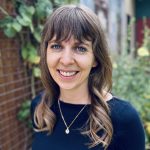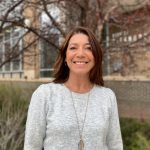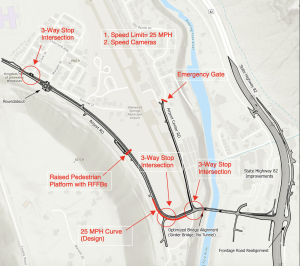Whiting column: How do we determine truth?
Personal Responsibility

We not only desire but need truth.
We want to know, communicate, utilize, and be comfortable with the truth. It would make our world, lives, and decisions simpler and more effective. We are constantly attempting to determine the truth. However, truth is an elusive concept.
Each of us grapples with the concept from our individual viewpoints and life experiences. Conclusions are drawn, but confident answers are fewer.
Truth and fact are different concepts, not synonyms, but ironically, not mutually exclusive. We err assuming they are. Facts are inconvertible: Water is composed of two hydrogen atoms and one oxygen atom, Newton’s Third Law of Motion, Pythagorean Theorem. We might try but can’t alter facts to meet a personal agenda unless those we wish to convince lack knowledge.
It would be convenient if all truth was fact, but the truth we experience and know is relative to our individual situation. It’s our perception and knowledge at this moment. It’s a function of our experience for no other reason than truth contains a significant element of emotion. It’s our truth. Or their truth. Logically, we believe our truth is “the” truth. The consequence is disagreement and mutual roadblocks to compromise. The emotion involved in our convictions gets in the road.
This becomes applicable to all situations whether international, country-wide, or families.
Determining truth is facilitated by correctly understanding and utilizing words we frequently attach to truth. Freedom provides the opportunity to do whatever we want. Liberty protects us from people doing whatever they want. Liberty requires and defines our responsibility to others. Consequently, freedom requires the presence of liberty, or the lack of justice will prevent freedom’s existence. Both concepts contribute to truth at any given moment.
Practical ramifications result. Laws are irrefutable. If it’s on the books, it must be enforced. We can’t pick and choose. If we feel a law unjust, regardless of reason, there is a definitive process to change it. A disagreement as to whether something occurred is an issue of fact to be determined by the court. The verdict determines truth.
Some contend truth doesn’t exist. But acknowledging the presence of lying confirms the presence of truth.
Because truth is relative, it generates different responses. For many, truth creates a fight or flight scenario. An individual’s truth at a particular moment can cause people to flee to another town, state, or country. Some may flee Country A to Country B because of safety or opportunity. Another may flee Country B to Country C, disagreeing with a perceived specific truth in Country B thereby giving up safety and opportunity not available in Country C. The flight response can be ironic, because some choose flight then work to change their new country more like what they fled.
Others may choose the fight response. They stay in Country A or B and work to generate change internally within the prescribed process.
Others choose the fight response by imposing their truth. This can take many forms. They, by design, move to Country B in increasing numbers to the point they control the political system through elections and change truth to match their definition.
Another confrontational response is imperialism. A country physically takes over another to impose their truth. Typically, imperialism is a decision made by the leaders of the country not its people. This response is chosen because their truth isn’t convincing enough on its own merits. Force is required.
It’s our responsibility to not be naïve and realize all the above responses are present today and determine appropriate response. If we don’t, we can’t be surprised if our truth disappears.
We are all responsible for own response to any situation, especially regarding our truth. If we feel our truth is correct but not present, risk is involved in advocating change. Silence is a response, but failure to speak means we accept the presence of the wrong truth. Choosing to speak carries a responsibility to allow others to speak; even if not supporting our truth.
Often the best strategy is listening. If our goal is the best truth. We must not only listen but be willing to hear and consider. It’s possible someone else’s truth can be better. It’s called critical thinking.
In choosing to speak, it’s our responsibility to possess sufficient knowledge and experience required for our truth to possess reasonableness, responsibility, and practical implementation. Typically, in our youth, we have the energy and idealism necessary but lack the life experiences necessary to understand the best truth. “Rebel without a clue” is an accurate description. We don’t want to lose idealism, just provide it the weapons for implementation.
Truth is necessary. Without it people tend to believe in nothing or everything. Without it people flock toward anyone paying attention to them regardless of sincerity or motivation. Those lacking belongingness or recognition become susceptible to gangs, cults, politicians, or other scams. Their truth is bought by free stuff and their desire to identify with any truth.
Trust is an essential element of truth. Despite our desire, it can be difficult to know the truth. It’s not as if we’re unreasonable. We are willing to change our truth if we trust the validity of a new truth. Often those with an ulterior motive try to camouflage the truth. This can take many forms: denying its existence, attacking its credibility, prohibiting access to or communication of through both legal or illegal means, and providing conflicting or false information. Our own cynicism can hinder especially when we see political parties automatically opposing every aspect of another party’s truth without any deliberation.
Both proliferation and control of media get in the road. With differing information available from hundreds of easily accessed on-line technologically based sources we don’t know which to believe. So, we don’t believe any. The recent ownership consolidation of major print and broadcast media has facilitated rather than limiting their perceived bias and slant. We feel they desire control instead of focusing on reporting and letting us decide. We don’t have a valued, reliable source of truth.
Lack of truth makes holding people, organizations, policies, or governmental departments accountable. Because they originate it, any results or numbers are likely structured to their benefit. We realize any survey or data can be constructed, construed to provide the desired result.
The lack of trust enables our doing nothing. The status quo feels more comfortable. We feel any change to our truth possesses risk and difficulty to the degree it manifests into fear.
Decades with a lack of effective leadership exacerbates the situation. It’s like the person lost in the desert crawling across the sand to a mirage. If there isn’t any water they’ll drink the sand, because at that point they don’t know the difference. People will turn to demagogues because they claim to be a leader and know the truth.
The absence of confidence in truth makes our innate values and common sense not only more significant but necessary. They must guide us in our decision-making as we determine our truth if progress is to be made and errors minimized.
We have a personal responsibility to not only know our truth but do our due diligence to determine its validity and demand the same of our institutions and leaders.
Bryan Whiting feels most of our issues are best solved by personal responsibility and an understanding of non-partisan economics rather than government intervention. Comments and column suggestions to: bwpersonalresponsibility@gmail.com.

Support Local Journalism

Support Local Journalism
Readers around Glenwood Springs and Garfield County make the Post Independent’s work possible. Your financial contribution supports our efforts to deliver quality, locally relevant journalism.
Now more than ever, your support is critical to help us keep our community informed about the evolving coronavirus pandemic and the impact it is having locally. Every contribution, however large or small, will make a difference.
Each donation will be used exclusively for the development and creation of increased news coverage.









